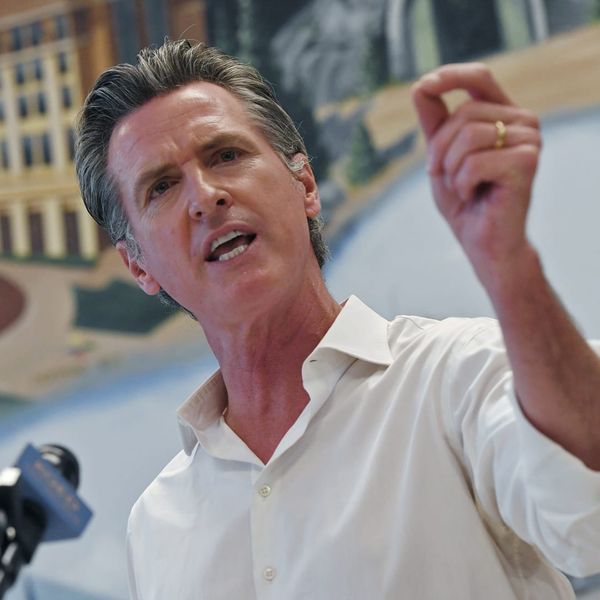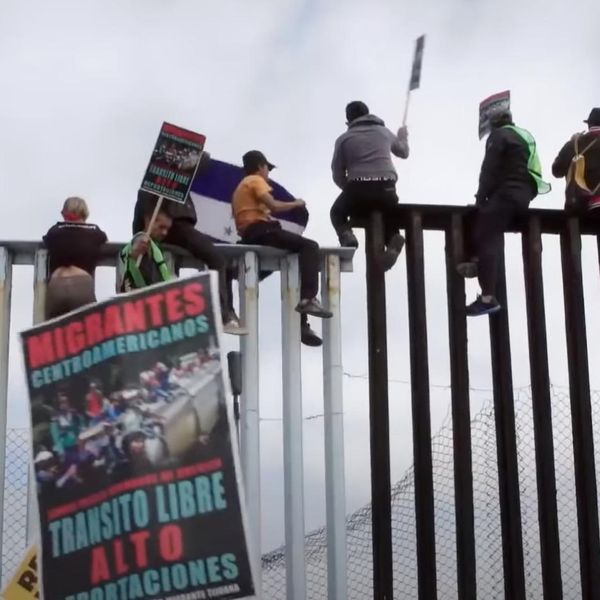Will Ted Cruz Super PACs Usher In New Frontier Of Donor Influence?

By Julie Bykowicz and Heidi Przybyla, Bloomberg News (TNS)
The four super PACs preparing to give a $31 million boost to the presidential hopes of Texas Sen. Ted Cruz represent the latest twist in the infiltration of big money in politics — and a way for wealthy donors to have an even more direct say in how their money is spent.
One of the constellation of committees first reported Wednesday by Bloomberg appears to be underwritten by Republican mega-donor Robert Mercer and his family. Campaign lawyers said the arrangement is unlike anything they’ve ever seen before.
“It’s something to watch,” said Jason Abel of Steptoe & Johnson, who is not involved with the super PACs. Abel and other lawyers speculated that multiple committees, all of which are named some form of “Keep the Promise,” were created to satisfy the whims of individual donors.
“It appears that setting up multiple super PACs would allow maximum flexibility for certain donors to push their issues,” Abel said. The Campaign Legal Center’s Paul Ryan suggested that the arrangement creates “different pots of money for donors to fund different things.”
A strategist involved with the committees, who asked not to be named because he’s not authorized to speak publicly, corroborated those theories. Each of the super PACs — Keep the Promise and three “sub-super PACs” dubbed Keep the Promise I, Keep the Promise II and Keep the Promise III — will be controlled by a different donor family, and will likely develop different specialities, such as data mining, television advertising and polling, the strategist said.
In statement Wednesday, Dathan Voelter, a Cruz friend who is serving as treasurer for three of the committees, said donors would not be revealed until July, when the committees are required to file with the Federal Election Commission. But a source connected to the Mercer family told Bloomberg that Mercer and his daughter, Rebekah, are the monied force behind Keep the Promise I. The National Review also reported the Mercers’ involvement. While an aide to Mercer, the co-chief executive officer of Renaissance Technologies, declined to comment, there are strong indications that the money trail leads back to the wealthy and ardently Republican family.
Keep the Promise I, at the donors’ request, uses a different accounting firm than the other three. That firm is based in Port Jefferson Station on Long Island, N.Y., two miles from East Setauket, where Mercer lives.
Hours after Cruz announced his presidential bid last month, he and his wife, Heidi, courted donors at Rebekah Mercer’s Manhattan apartment, according to the New York Post. Rebekah Mercer, who owned a Manhattan pastry shop with her sisters, has a fondness for Cruz: Since 2012, she has given him more than $28,000. In 2012, the year Cruz was first elected to the Senate, Federal Election Commission records show that she wrote a $15,000 check to Club for Growth, one of the biggest spenders in the race.
Rebekah Mercer’s father’s involvement means Cruz has tapped the vein of the upper echelons of Republican benefactors. The reclusive Robert Mercer was the fourth-most generous donor to outside groups in the 2014 elections, spending $9.2 million on conservative causes and candidates, according to the Center for Responsive Politics.
At the other end of the spectrum, Cruz has been heralding his small-dollar online support. Last week, he boasted to Iowa Republicans that he’d raised $4 million in the eight days since announcing his presidential campaign, 95 percent of which, he said, was in the form of $100-or-less donations.
The idea for the Keep the Promise PACs came together quickly — all of the super PACs filed paperwork with the FEC in the past several days. None of the PACs have held fundraisers, the unnamed strategist for the group said, adding that it will be up to the founding donors as to whether they want to raise money from anyone else.
The Keep the Promise enterprise appears to represent an entirely new level of donor involvement in campaign finance, with donors now directly calling the shots on how their money is to be spent and organizing with each other as never before.
The Citizens United decision by the Supreme Court in 2010, and subsequent court rulings and federal regulations, opened a pathway for multimillion dollar donations from individuals, companies and unions to flow into politics. In the 2012 presidential election, President Barack Obama, Republican nominee Mitt Romney and others embraced super PACs, appearing at a handful of their fundraisers.
More recently, some donors have begun not just writing big checks, but starting their own super-PACs. John Jordan, a California winery owner, spent about $1.5 million on his own super PAC in 2013 to help Republican Massachusetts Senate candidate and fellow Naval officer Gabriel Gomez. Democrat Ed Markey prevailed.
Jordan, who is not involved in any 2016 fundraising efforts, predicted that the Cruz committees mark the beginning of a trend. “It’s more fun to play kingmaker than to give your money to some consultant and let them take all the credit,” he said in an interview Wednesday. “This is an upending of traditional roles in Republican politics. Donors used to be in the category of ‘write a check and go away’ while the operatives called all of the shots. Donors don’t want to play second fiddle anymore.”
(c)2015 Bloomberg News, Distributed by Tribune Content Agency, LLC
Photo: U.S. Sen. Ted Cruz (R-Texas) speaks at the 42nd annual Conservative Political Action Conference (CPAC) on Thursday, Feb. 26, 2015, in National Harbor, Md. Cruz announced his presidential bid Monday. (Olivier Douliery/Abaca Press/TNS)








